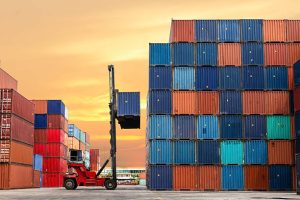This is new blog-Don’t miss out!
Common sense can suffice in many situations, butwould not be enough in near-distress situation

Global supply chain blogs
About the Author
 Vivek Sood: Sydney based managing director of Global Supply Chain Group, a strategy consultancy specializing in supply chains. More information on Vivek is available on www.linkedin.com/in/vivek and more information on Global Supply Chain Group is available www.globalscgroup.com
Vivek Sood: Sydney based managing director of Global Supply Chain Group, a strategy consultancy specializing in supply chains. More information on Vivek is available on www.linkedin.com/in/vivek and more information on Global Supply Chain Group is available www.globalscgroup.com
Vivek is the Managing Director of Global Supply Chain Group, a boutique strategy consulting firm specialising in Supply Chain Strategies, and headquartered in Sydney, Australia . He has over 24 years of experience in strategic transformations and operational excellence within global supply chains. Prior to co-founding Global Supply Chain Group in January 2000, Vivek was a management consultant with top-tier strategy consulting firm Booz Allen & Hamilton.
Vivek provides strategic operations and supply chain advice to boards and senior management of global corporations, private equity groups and other stakeholders in a range of industries including FMCG, food, shipping, logistics, manufacturing, chemicals, mining, agribusiness, construction materials, explosives, airlines and electricity utilities.
Vivek has served world-wide corporations in nearly 500 small and large projects on all continents with a variety of clients in many different industries. Most of projects have involved diagnostic, conceptualisation and transformation of supply chains – releasing significant amount of value for the business. His project work in supply chain management has added cumulative value in excess of $500M incorporating projects in major supply chain infrastructure investment decisions, profitable growth driven by global supply chain realignment, supply chain systems, negotiations and all other aspects of global supply chains.
Vivek has written a number of path breaking articles and commentaries that are published in several respected journals and magazines. Vivek has spoken at several supply chain conference, forums and workshops in various parts of the world. He has also conducted several strategic workshops on various aspects of supply chain management. He received his MBA with Distinction from the Australian Graduate School of Management in 1996 and prior to these studies spent 11 years in the Merchant Navy, rising from a Cadet to Master Mariner.
More information on Vivek is available on www.linkedin.com/in/vivek and more information on Global Supply Chain Group is available on www.globalscgroup.com
Introduction
Common sense is a tool that people rely on in daily life. It is the ability to think logically and arrive at a reasonable conclusion, often using intuition and experience as guidance. Most people trust their common sense when making decisions or solving problems, but this may not be enough in near-distress situations where there are heightened emotions or stakes involved. In these circumstances, it is important to weigh options carefully and consider the consequences before taking action.
Common sense can often provide helpful advice when no other resources are available, but it may not always be the best option in more extreme cases. For example, if someone was faced with the risk of physical harm or property loss, they would need more than just common sense to cope with the situation effectively.

Content
Common sense can be an important factor in a variety of situations. In everyday life, common sense is often enough to make wise decisions. It allows us to assess the risks and benefits of certain actions, think critically about problems, and respond quickly without having to refer to any external knowledge or advice. However, there are times when common sense alone may not suffice. In near-distress or emergencies, relying on common sense may not be enough to ensure the best outcome for all concerned.
In these types of circumstances, it is important to rely on more than just intuition and experience; instead, one should research the issue at hand and consult with professionals who have experience in handling similar issues before taking action. By doing so, one can better inform their decision-making process since they will have access to more accurate resources about managing such a situation properly.
Common sense can be a powerful force in many situations, but it would not be enough to meet the demands of near-distress circumstances. The purpose of common sense is often taken for granted, as its value is usually only seen through its absence. Common sense can help guide decisions in daily life and direct actions meant to maintain stability and order; however, it would not be sufficient when facing an event or situation that requires quick thinking and decisive action.
In such distressing conditions, common sense may fall short due to the limitations of its capacity. It does not account for rapid changes or responses on a large scale; instead, it focuses on small-scale interventions that prevent problems from occurring rather than addressing them directly when they arise. Therefore, relying solely on common sense during moments of distress could lead to insufficient solutions and prolonged suffering if more practical methods are not implemented rapidly.
Common sense can be a powerful ally in many situations but is not always enough to save the day when it comes to near-distress situations. In such crises, having a proactive and well-thought-out plan with steps that address the issue as quickly as possible is essential. It is important to weigh out the pros and cons of any given situation before taking action to ensure that the appropriate response is taken.
This strategy allows for interventions that are more likely to lead to positive outcomes. Proactively assessing a situation before acting allows one to apply resources efficiently, thus allowing for a swift resolution of any problem. Additionally, this approach helps reduce stress and panic during difficult times because there is already an established plan which can be followed with relative ease.
Common sense can be a great asset in many situations, but it is not always enough to get through difficult times. For example, when faced with a near-distress situation such as an emergency or crisis, common sense alone will not be adequate for making the best choices and decisions. In these cases, people need to have access to resources and knowledge that go beyond what is instinctively obvious. Without additional information or advice from those who are more experienced in handling similar crises, the consequences of relying on common sense could be serious and harmful rather than helpful.
Furthermore, common sense may not always provide someone with the best possible solution if they are dealing with a complicated problem. Certain topics require deeper understanding that cannot be obtained solely by relying on intuition or instinct.
Example:

Common sense can be a valuable asset in many situations, but would not be enough in the near-distress situation. For example, imagine someone being mistreated by their partner. Common sense would suggest they should leave the relationship and seek help, yet this may not always be possible due to financial dependence or fear of retaliation from their partner. In such a scenario, common sense alone might not suffice. A person in this position needs to access more reliable sources of guidance such as support services for victims of domestic abuse or trusted family and friends for advice and comfort.
In addition to seeking external assistance, it is important for those experiencing distress to learn about available resources which can lead them toward recovery.
Conclusion
In conclusion, common sense is not always enough. In most day-to-day situations, relying solely on common sense is an effective approach. However, in times of near-distress or emergency, a person should turn to experts and professionals for help. The expertise of these people in addition to the individual’s knowledge and experience will be necessary for the successful resolution of the situation. Common sense still plays an important part but cannot substitute the help of experts and professional assistance. Ultimately, having good judgment is important to make wise decisions; however, it must be supplemented with expert advice when needed to have successful outcomes.
Introducing.....

The global supply chain of products is an immense and complex system. It involves the movement of goods from the point of origin to the point of consumption, with intermediate steps that involve resources, materials and services to transport them. A supply chain encompasses activities such as purchasing, production, distribution and marketing in order to satisfy customer demands. Companies rely on a well-managed supply chain to meet their business goals by providing quality products and services at competitive prices.
Efficiently managing a global supply chain requires considerable effort, particularly when dealing with multiple suppliers located around the world. Complex logistics tracking systems are needed to monitor product movements from one place to another. Technologies such as artificial intelligence (AI) can help companies keep track of shipments across different locations for greater visibility into their processes.
what did Our Reader say?

GARRY BADDOCK
Chief Operating Officer Graphite Energy
I have experience with many of the well-known top-tier strategy firms but chose Global Supply Chain to support me on my supply chain projects. They always meet and exceed my expectations due to the quality of the work, the ability to work collaboratively with internal teams, and the flexibility to adjust the project approach when required.

PHILLIPPE ETTIENNE
CEO - Large Global transnational corporation From: FOREWORD - OUTSOURCING 3.0
When I engaged Vivek’s services for supply chain transformation in one of the companies I was heading, we expected the careful and methodical approach that he was famous for... I was pleased to note that the original target set for 3 years was surpassed by almost 70% in just 18 months.

TONY FEDOROWICZ
Vice-President Supply Chain Asia Pacific
I have used their services for several business transformations and workshops in many companies. Each time an outstanding workshop and project result was delivered ensuring the success of the business transformation project. Savings surpassed $25 Million per annum in one case. Very powerful ideas, were implemented very diligently.

Jean-Briac Le Dean
Co-Founder & Agen
Vivek is a very collaborative and open leader who leads teams by example. Whether internal teams, or clients teams, all are impressed by his intensity, energy level and drive to make things a little better.

Lorna Calder Johnson
Omni-Channel Product Marketing
P & L Executive
Vivek's transformation expertise is apparent from his results and dedication to operations and supply chains. His strategic expertise, knowledge and network make him a standout even among an excellent team.
Related Posts
Click below to see related posts.

The Impact of Plummeting Shipping Container Prices Across Industries
Explore the far-reaching consequences of plummeting shipping container prices on diverse industries, revealing the intricate connections shaping global trade, supply chains, and economic landscapes.

Race Day Logistics: Intricacies of Pit Stop
Explore the race day’s heartbeat: the art of pit stops. Uncover the intricate logistics orchestrating split-second tire changes, refuels, and strategy adjustments that define Formula 1’s high-speed drama.

Mastering Travel Logistics in Formula 1 Racing
Discover the art of flawless travel logistics in the high-speed world of Formula 1. Uncover how precision planning and real-time coordination keep teams on track across the global circuit.
